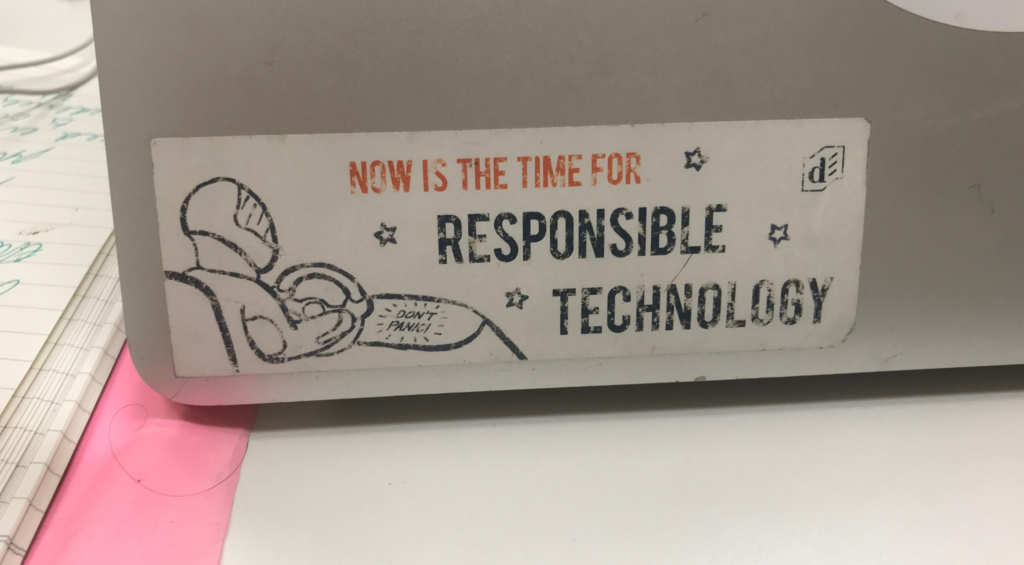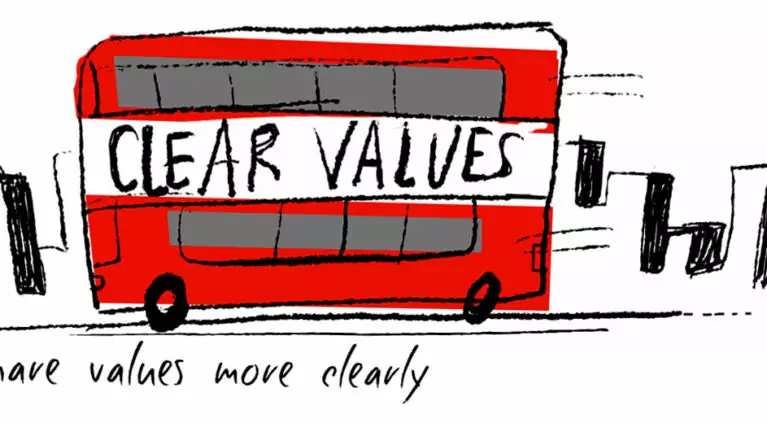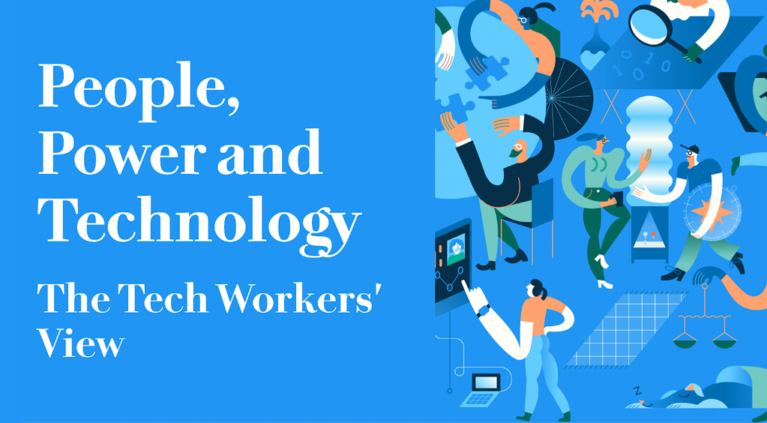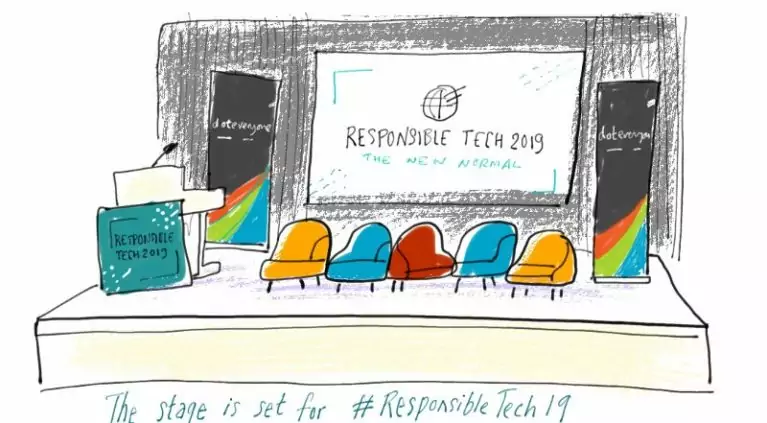It’s 2020 and it’s time to act

Doteveryone fights for better tech, for everyone. That means making sure technology is made and used responsibly so that it serves the interests of all of us – people, communities and planet.
In 2019 the conversation around technology took off. After the wake-up call of the Cambridge Analytica scandal in 2018, tech ethics grew with the exponential vigour you’d expect from the sector. There were so many AI reports that only AI could digest them and a proliferation of ethics principles and frameworks.
These conversations are important and serious. Understanding what is at stake from the impacts of technological change and what kind of digital society we want to build in the future are vital. And at Doteveryone we welcome the fact that there’s now debate on this from every quarter.
But debate can become noise, and observing isn’t enough. Change won’t happen through warm words in a warm seminar room.
Ethics, as Doteveryone’s outgoing CEO Rachel Coldicutt said, can just be the bottom of the barrel. We need to create a vision that is better than ethics. And as one MIT researcher points out, the ethics conversation can simply protect the vested interests of big tech.
Doteveryone has always been both impatient for change and determined to be useful – two of the values we that drive our direction as an organisation. In the last two years we’ve helped shape much of the debate around responsible technology – you can read about it in our 2018/19 Annual Review. We’re proud that Doteveryone has become the go-to voice in the conversation – it’s tribute both to the people that work here and to the generosity of the people and organisations who have funded us.
In 2020 we are focusing on making that change tangible. This means getting out and showing decision makers and practitioners how technology affects the society around them – and sharing with them practical tools and methods so they can start to make and use tech responsibly and straight away. It also means making sure there’s rigorous and actionable regulation to create the glue that makes this change stick.
We know there’s an appetite for change. Last year, our research with UK tech workers revealed how they are calling time on moving fast and breaking things – more than a quarter (28%) had seen decisions made about a technology that they felt could have negative consequences for people or society. Nearly one in five (18%) of those went on to leave their companies as a result.
The problem isn’t that tech workers can’t spot the bad stuff happening; it’s that there’s no way for them to address it – three-quarters would like resources to consider the consequences of what they build. We’re addressing this with TechTransformed, a set of practical methods to help build technology responsibly.
In the year ahead we’re focusing on growing the community of responsible innovators and organisations putting these approaches into practice with training and support. We also plan to adapt this approach for decision makers in policy and the public sector, so they too are able to anticipate and address the societal impacts of the technologies they build and use. This is complemented by our work exploring how the public sector could buy tech better.
Working with industry is the shortest route to getting upstream to where tech is made. But we recognise that there will be limits to how far industry will ever go to change their ways. And it should never be the job of business alone to decide what’s in everyone’s interest.
So in 2020 it’s vital that policymakers too move from talk to action. As our friend Stephanie Hare puts it, it’s time to grow up. The welcome focus on tech regulation in the UK, European Commission and in this year’s US presidential election must turn into holistic regulation that is not just a technocratic fix but that meets the needs of a public bearing the brunts of rapid and ubiquitous technological change. We’re currently working on how to ensure any new regulation helps the public seek redress from the impacts of technology.
Diving deeper into specific areas where the impact of technology is most keenly felt, we’ll be sharing our practical recommendations for how to support those most disadvantaged by the gig economy at the end of the month. We’ll be building on our recommendations for how technology can support a sustainable, effective and fair social care system. And there are new areas we want to explore too, including how to address the impacts of technology on the climate and economic inequality.
At the heart of everything we do is the ‘everyone’ we represent – people’s real, lived experience of a world reshaped by digital technologies. So we’ll be updating our groundbreaking People, Power and Technology research for 2020 to see how people’s attitudes and understanding of the impacts of tech have changed over time and how they want both industry and regulation to meet their needs.
Doteveryone’s ambition is a world where responsible technology is the new normal. We want to get to a point where making sure that technology supports a fair, inclusive and sustainable democratic society is something that’s so ingrained in how tech is made and used, we can all just take it for granted.
This time last year that we started to galvanise people to achieve that vision with our Responsible Tech: The New Normal event, bringing together those getting serious about a new way of doing things.
I still have a sticker on my laptop from that event. A year on and it’s starting to look a bit faded. But if anything the message is stronger – NOW really is the time for responsible technology.



